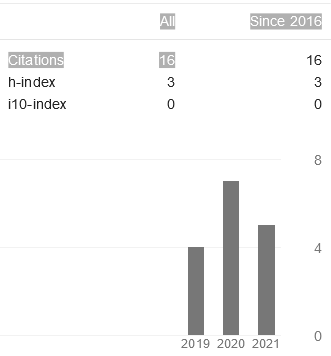Student-Teacher Trust as Predictor of School Well-Being among Madrasah Student
Abstract
School well-being is a situation where students can meet their basic needs while at school, including having, loving, being and health. The social relationships that students have when they are at school are with teachers. This relationship can be well established if it is based on students' trust in their teachers. This study aims to determine student-teacher trust as a predictor of school well-being in Madrasah X students in Surabaya. The research method used in this study is a quantitative method. Data collection techniques were carried out by distributing questionnaires to 155 students from grades
VII to IX with an age range of 12 to 15 years. This study uses the school well-being scale which has
41 items with a reliability coefficient = 0.957 and the student-teacher trust scale has 14 items with a
reliability coefficient = 0.862. The data obtained were then analyzed using the Spearman Rank
correlation analysis technique. The results of this study indicate that there is a significant relationship
between student-teacher trust and school well-being with a correlation value of 0.810 (p = 0.000)
which means that the hypothesis is accepted
Copyright (c) 2023 Nurrohmah, Suryani

This work is licensed under a Creative Commons Attribution-ShareAlike 4.0 International License.
Authors who publish with us agree to the following terms:
- Authors retain copyright and grant the publisher right of first publication with the work simultaneously licensed under a Creative Commons Attribution License that allows others to share the work with an acknowledgement of the work's authorship and initial publication in this proceeding.
- Authors are able to enter into separate, additional contractual arrangements for the non-exclusive distribution of the proceeding's published version of the work (e.g., post it to an institutional repository or publish it in a book), with an acknowledgement of its initial publication in this proceeding.
- Authors are permitted and encouraged to post their work online (e.g., in institutional repositories, pre-prints sites or on their website) prior to and during the submission process, as it can lead to productive exchanges, as well as earlier and greater dissemination of published work





_page-00011.jpg)
